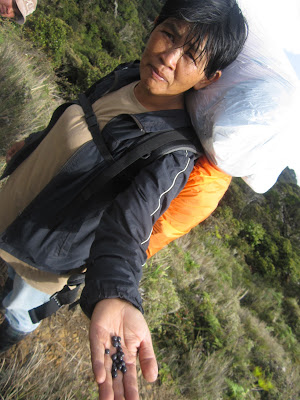Yes, I am not joking. There really are Philippine blueberries! I was actually amazed to discover this the first time I went for a climb to the summit of the 2nd largest mountain in the Philippines- Mount Pulag.
My friends and I were concentrating on the rocky and sometimes slippery trail in front of us when our eyes caught movement on the side of the slope. There were locals bending over picking something from the bushes. At first, I thought, they were just picking some leaves either to eat or to use for medicinal purposes. But on closer inspection, the locals were actually eating what they have just picked right out of the bushes. That heightened my curiosity! So I asked them what they were eating.. And guess what?! They said they were blackberries (maybe they got used to calling it "blackberry" because of its color). They even offered some of their bounty for us to try. They were as small as beads, purplish, bluish, and sometimes red or black- depending on how ripe they were. But no doubt, they really are blueberries (smaller version compared to what we import, but nevertheless tastes the same). Amazing right? never thought we had them here in the Philippines!


Comments
Post a Comment